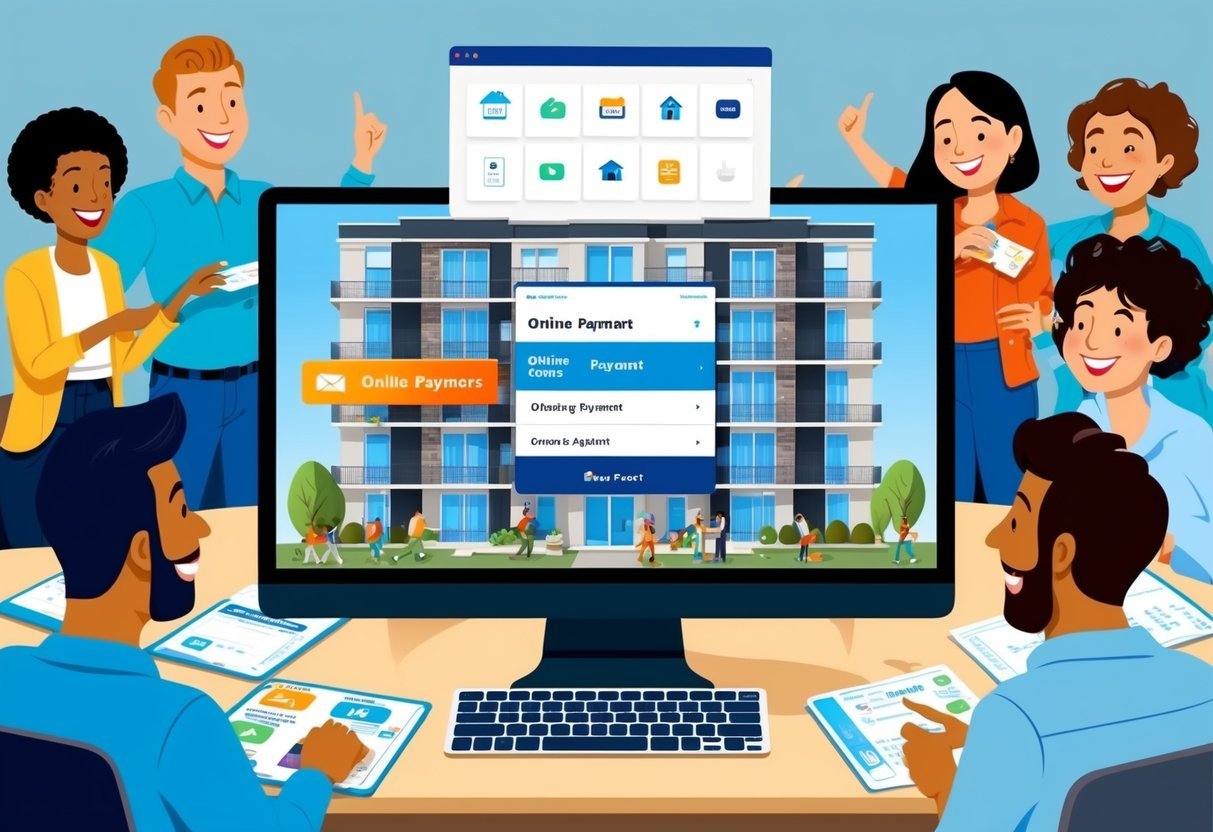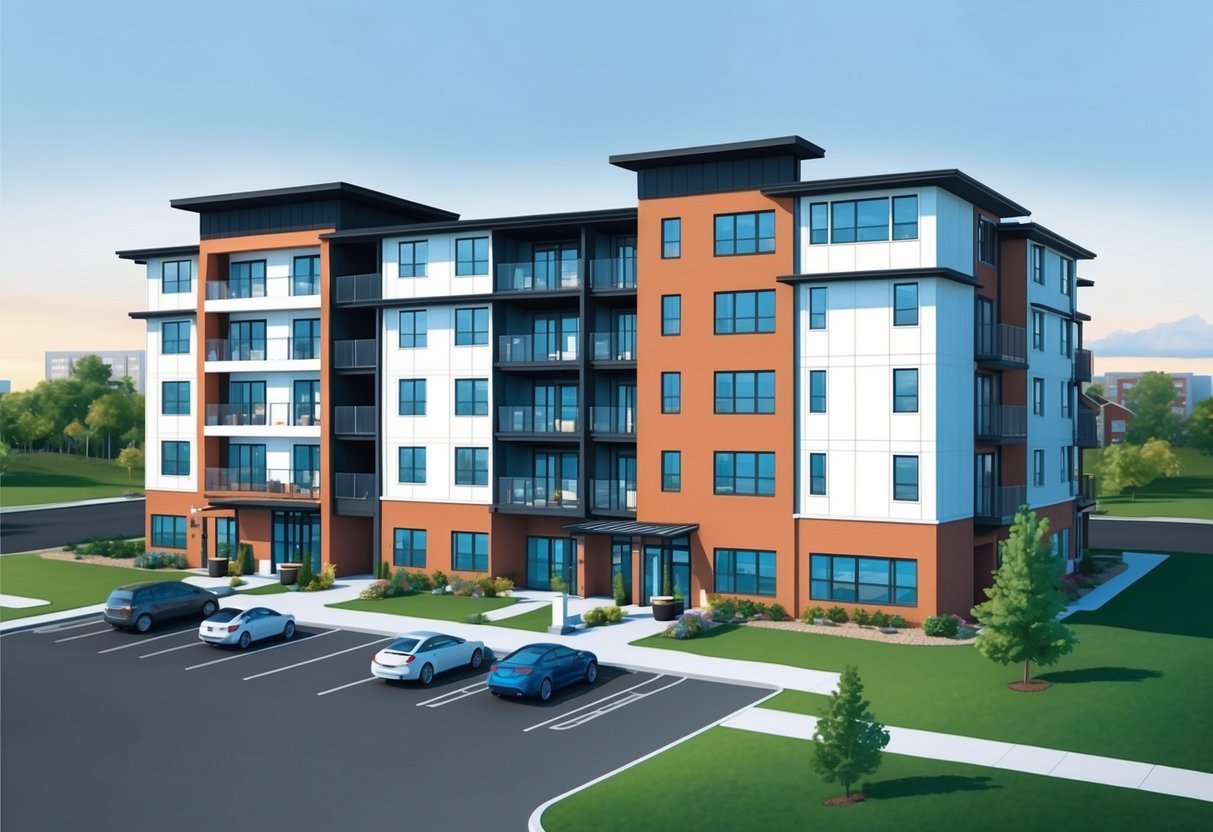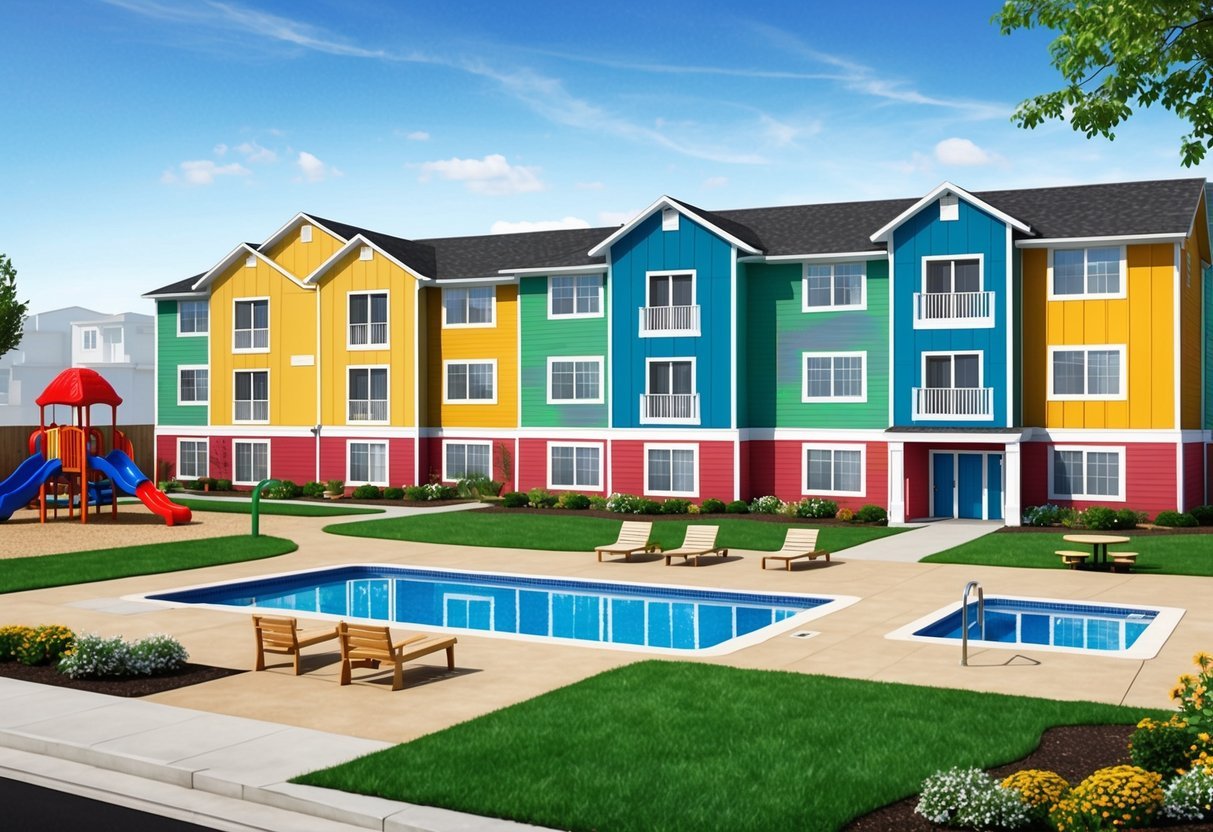In the competitive real estate market, tenant retention is a vital aspect of maintaining successful rental properties.
As property managers and landlords, we understand that keeping existing tenants is often more beneficial than constantly seeking new ones. Tenant retention not only reduces vacancy periods but also enhances the stability and profitability of rental investments.

Our approach focuses on fostering long-term relationships by ensuring tenant satisfaction and addressing their needs.
By exploring effective strategies, we can create an environment that encourages tenants to stay, ultimately benefiting both parties involved.
1) Offer Flexible Lease Terms
Providing flexible lease terms is a strategic way to enhance tenant satisfaction in our rental properties.
By accommodating different lease lengths, such as short-term or month-to-month agreements, we cater to the diverse needs of our tenants.
This flexibility allows them to choose arrangements that fit their personal and professional lives.
Tenants may appreciate options that allow for subletting or easy lease transfer.
This consideration can alleviate stress for those facing unpredictable life changes.
When tenants feel their living situation can adjust to their circumstances, they are more likely to remain with us long term.
We have seen that flexible lease terms not only increase tenant happiness but also improve retention rates.
Offering choices reflects our understanding of their needs, which builds trust and loyalty.
These elements are essential in creating a stable and thriving rental environment.
Addressing potential concerns about flexibility is crucial.
By setting clear guidelines and transparent communication, we can manage expectations effectively.
This approach helps ensure that both parties benefit from the arrangement.
It’s a balanced approach, highlighting our commitment to tenant-centric service.
By prioritizing flexibility in our leasing agreements, we position ourselves as attentive and responsive landlords.
It’s a proactive measure that distinguishes our properties in a competitive market.
Potential tenants may find this adaptability appealing, potentially reducing vacancy rates.
2) Enhance Property Amenities
Improving property amenities is a vital strategy for boosting tenant retention.
We can focus on both traditional amenities, such as ensuring reliable heating and cooling systems, and modern conveniences, like high-speed internet access.
Enhancing these features not only provides greater comfort but also adds value to the rental experience.
Fitness centers and recreational spaces are in high demand by today’s tenants.
By investing in a well-equipped gym or a communal lounge area, we provide residents with opportunities to unwind and socialize.
These spaces promote a sense of community and can be a significant factor in a tenant’s decision to stay.
Security features play a crucial role in retaining tenants.
Installations such as secure access systems, surveillance cameras, and good lighting can make residents feel safer and more inclined to renew their leases.
Safety is a top priority, and we should go above and beyond to ensure tenants feel protected.
Parking availability is another critical amenity.
If space permits, providing designated parking options can be a significant perk.
This convenience reduces daily hassle and enhances tenant satisfaction, making them more likely to remain at the property longer.
Finally, accommodating pet owners by including amenities like pet-friendly areas or washing stations can attract a broader tenant base.
As more individuals and families own pets, catering to their needs can serve as a compelling reason for them to stay.
These thoughtful enhancements demonstrate our commitment to creating a desirable living environment.
Implement Responsive Maintenance Services

In the realm of property management, providing responsive maintenance services is essential for keeping tenants satisfied.
When residents feel confident that their concerns will be addressed promptly, they are more likely to renew their leases.
It establishes trust and shows that we value their comfort and wellbeing.
Our maintenance team should always be prepared to address issues efficiently.
This means having skilled personnel readily available and ensuring they have access to necessary tools and parts.
A well-organized system for managing and prioritizing maintenance requests is crucial in achieving this goal.
Communication is also a key component of effective maintenance services.
We must keep tenants informed about the status of their requests.
Regular updates can reassure them that their issues are being taken seriously, fostering goodwill and patience, even if immediate fixes aren’t possible.
Regular maintenance checks and preventive repairs can help us identify and solve potential problems before they impact tenants.
This proactive approach minimizes disruptions and shows our commitment to maintaining quality living conditions.
It also helps avoid more costly repairs down the line.
Tenants’ feedback should be encouraged and valued.
Their insights can guide our efforts to improve the maintenance process.
By inviting their input, we can adapt our approach to better meet their needs, reinforcing their satisfaction and trust in our services.
A swift, effective maintenance service can significantly enhance the tenant experience.
It not only addresses immediate issues but also contributes to a positive perception of the property and its management, encouraging long-term tenancies.
4) Create Community Events

Organizing community events is a key strategy in improving tenant retention.
These events provide opportunities for residents to build relationships with their neighbors, fostering a sense of belonging.
When tenants feel connected to their community, they are more likely to stay.
We can consider hosting various social gatherings.
A community BBQ or cookout is a popular option, allowing tenants to enjoy food and conversation in a relaxed setting.
These casual events make it easy for residents to engage and mingle.
Movie nights are another effective way to bring tenants together.
By setting up a projector and screen in a common area, we can create a cozy atmosphere.
Providing snacks and drinks adds to the enjoyment, encouraging residents to participate.
Seasonal events can also be effective, tapping into the spirit of different times of the year.
Holiday-themed parties or summer picnics offer additional opportunities for residents to join in and strengthen community ties.
These events can generate excitement and encourage more tenants to join.
It’s important to communicate details about these events effectively.
We should utilize various channels such as newsletters, emails, and community bulletin boards to ensure tenants are informed and excited to attend.
Clear communication helps boost participation rates.
Collecting feedback from participants can help us improve future events.
Understanding what tenants enjoy and value ensures that we create gatherings that align with their interests.
This tailored approach can enhance overall satisfaction in the community.
Investing time and effort in organizing these events helps establish a vibrant, engaged community.
By facilitating connections among tenants, we can foster loyalty and retain residents longer.
5) Provide Renters’ Insurance Options

Offering renters’ insurance options can enhance the living experience for tenants.
By providing them with convenient access to insurance, we help protect their belongings from potential damage or loss.
It also offers us peace of mind, knowing that tenants are more likely to recover quickly in the event of mishaps.
Partnering with local insurance providers or recommending trusted companies is beneficial.
By presenting these options during lease signing, we make tenants aware of the protection available to them.
Tenants will appreciate the added security, contributing to their overall satisfaction and potentially encouraging long-term tenancy.
Educating tenants about the importance of renters’ insurance is a proactive step.
This not only safeguards their possessions but also can prevent disputes in case of an incident.
Through informative sessions or brochures, we can effectively communicate its value and encourage adoption.
Including it as an option in lease agreements can streamline the process.
When tenants view it as a standard offering, they’re more likely to consider enrollment.
It also enhances our image as responsible property managers who prioritize tenant welfare.
Incorporating renters’ insurance into our tenant retention strategy is a simple yet effective measure.
With minimal effort, we can significantly increase tenant satisfaction and perceived value of our properties.
It’s an investment in fostering trust and building enduring relationships with tenants.
6) Develop Loyalty Programs

Developing loyalty programs can significantly enhance tenant retention in our rental properties.
By rewarding long-term tenants with incentives, we can foster a sense of appreciation and community.
These programs can include various options such as rent discounts, gift cards, utility subsidies, or other perks that attract tenants’ interest.
Implementing a points system may also be effective.
Tenants could earn points for timely rent payments, participating in community events, or referring new tenants.
Points can then be redeemed for rewards or privileges, providing additional motivation for tenants to stay engaged and committed to our property.
Personalized rewards add another layer of effectiveness to loyalty programs.
By understanding tenant preferences and tailoring rewards accordingly, we strengthen our relationships with them.
This personal touch demonstrates that we value their individuality and contributions to the community.
We can also host exclusive tenant appreciation events.
These gatherings are opportunities for us to express gratitude and build stronger community bonds.
When tenants feel valued and connected, they are more likely to renew their leases and remain part of our community.
It’s important to communicate these programs clearly.
By informing tenants of available benefits and how they can participate, we ensure that they are engaged and aware of the value offered.
Transparency and clear communication can further enhance trust and satisfaction.
7) Offer Online Rent Payment Options

As property managers, providing online rent payment options can significantly enhance the tenant experience.
Tenants appreciate the convenience of paying rent digitally, which can lead to higher satisfaction levels.
By offering this service, we can demonstrate our commitment to modern and efficient living solutions.
Using online platforms ensures timely rent collection and provides an accessible record for both us and our tenants.
Automatic payment reminders can reduce late payments, making the rent process more manageable for all parties.
Incorporating these tools simplifies financial tracking and streamlines our operations.
Our tenants are increasingly tech-savvy, and online payments cater to their preferences.
Services like ACH transfers and credit card payments are popular options that offer flexibility.
This method also helps in maintaining positive relationships as it indicates we are responsive to their needs.
Several online rent payment services cater to diverse needs, from secure transactions to additional features like credit reporting.
By selecting the right service for our properties, we can improve tenant satisfaction and retention.
It’s crucial to adapt to technological advances that support a more efficient rental process.
Encouraging the use of these services can also lead to fewer disputes over payments, as digital records provide clear transaction histories.
This reduces misunderstandings and fosters trust between us and our renters.
Introducing online payment solutions thus becomes an effective strategy to retain tenants and enhance their overall experience in our properties.
Upgrade Security Features

Enhancing security features can significantly improve tenant retention in our rental properties.
Tenants need to feel safe, and installing modern security systems helps create a secure environment.
This includes smart locks, which offer convenience, and video surveillance, which acts as a deterrent against potential threats.
Incorporating alarm systems is another effective measure.
These systems alert tenants and authorities in case of emergencies, providing peace of mind.
This reassurance contributes to reduced tenant turnover.
As landlords, we demonstrate our commitment to tenant safety by implementing these improvements.
Additionally, investing in better lighting around the property, especially in common areas, boosts security.
It deters unauthorized access and enhances the visual appeal of the property.
Motion-sensor lights can further bolster these efforts by illuminating areas only when needed.
Implementing intercom systems at building entrances allows us to control access and further ensure safety.
Tenants can verify visitors before granting entry, thereby reducing the risk of unauthorized access.
In high-demand areas, advanced security measures can also be a value proposition.
Offering these features can make our properties more attractive to prospective renters, thereby increasing occupancy rates.
We also need to make sure to regularly inspect and maintain these systems.
Keeping security features in top working order ensures continuous protection and can prevent costly repairs in the future.
Tenants appreciate this active approach to safety, which reflects positively on us as property managers.
Understanding Tenant Retention

Tenant retention is crucial for maximizing profits and maintaining a stable rental income.
By focusing on tenant satisfaction and addressing specific factors that impact their experience, we can reduce turnover and foster lasting relationships with our residents.
The Importance of Tenant Retention
High turnover rates can be costly, leading to increased expenses related to advertising, screening, and preparing units for new occupants.
Retaining tenants minimizes these costs and supports financial stability.
Satisfied tenants are more likely to renew their leases, share positive feedback, and refer potential renters.
This creates a positive reputation and reduces the risk of vacancies.
Consistent income for property owners and a harmonious living environment for tenants are key benefits.
Factors Affecting Tenant Satisfaction
Tenant satisfaction hinges on various elements such as property maintenance, communication, and community engagement.
Proper maintenance ensures a safe and comfortable living space, directly influencing tenants’ decision to stay.
Effective, open communication with tenants addresses concerns promptly and fosters trust.
Building a sense of community through events or shared spaces can enhance tenant interactions and create a welcoming atmosphere.
Each factor plays a vital role in shaping tenants’ overall experience and retention decision.
Strategies for Improving Tenant Retention

Maximizing tenant retention hinges on crafting a satisfying experience while ensuring efficient communication.
These elements can significantly minimize tenant turnover and foster long-lasting relationships with tenants.
Creating a Positive Tenant Experience
To improve tenant retention, we must prioritize the tenant’s living experience.
A Resident Benefits Package can significantly enhance satisfaction.
Such packages often include services like emergency maintenance, community events, and amenities that align with tenants’ interests.
In addition, responding promptly to maintenance requests is crucial.
Quick resolutions not only maintain property standards but also show our commitment to tenants.
Automated service systems can track requests in real-time, ensuring no task falls through the cracks.
Conducting regular tenant surveys provides insights into potential improvements.
Feedback helps us understand what tenants value most about their living situation, allowing for continuous enhancements.
Effective Communication Techniques
Clear communication is fundamental in nurturing tenant relationships.
Establishing open channels for feedback encourages tenants to voice concerns before they escalate.
This might include regular check-ins and promptly addressing queries via email or phone.
Interactive platforms, like tenant portals, streamline communication.
These portals allow tenants to pay rent, track maintenance requests, and engage with the community—all from a single interface.
Transparency about property policies and any changes, such as rent adjustments, keeps tenants informed and builds trust.
Regular newsletters or updates can also keep tenants engaged with our property management initiatives.
Being approachable and responsive creates a welcoming environment, crucial for retention.
Analyzing and Adjusting Retention Strategies
Understanding tenant retention requires us to pay close attention to tenant feedback and regularly evaluate retention metrics.
These processes enable us to make informed adjustments to our strategies, enhancing tenant satisfaction and improving retention rates.
Monitoring Tenant Feedback
To maintain strong tenant relationships, we encourage open communication channels.
Regular surveys and feedback forms are invaluable tools for capturing tenant sentiment.
By systematically collecting this information, we gain insights into what tenants value and where improvements are needed.
Active listening is another vital component.
We take the time to address feedback promptly, demonstrating our commitment to tenant satisfaction.
Follow-up meetings can clarify concerns and work towards actionable solutions.
This not only resolves issues effectively but also builds trust, increasing the likelihood of lease renewals.
Evaluating Retention Metrics
Analyzing retention metrics helps us assess the effectiveness of our strategies.
We start by determining the tenant retention rate, which involves comparing the number of tenants at the start and end of a period and calculating the percentage retained.
Patterns in these statistics reveal trends and pinpoint areas needing attention.
Additionally, examining metrics like turnover rate and lease renewal rate provides a comprehensive understanding of tenant behaviors.
By integrating this data with tenant feedback, we fine-tune our approach to meet specific tenant needs and preferences.
Data-driven decisions ensure our strategies not only align with our business goals but also support our tenants’ happiness and long-term residency.
Frequently Asked Questions
To successfully retain tenants in rental properties, it is vital to focus on strong communication, proactive maintenance, and cultivating positive relationships.
We emphasize the significance of understanding tenant needs and addressing concerns promptly.
How can property managers effectively retain current tenants?
We believe that offering flexible lease terms and enhancing property amenities play a significant role in tenant retention.
Fostering a sense of community by organizing events also helps make tenants feel more connected and valued.
What are the key elements of a successful tenant retention strategy?
A successful strategy often includes providing responsive maintenance services and offering options like renters’ insurance.
Addressing tenant needs efficiently helps build trust and satisfaction, which are critical for long-term retention.
How is tenant retention rate calculated and what is considered a good rate?
Calculating the tenant retention rate involves dividing the number of tenants at the end of a period by the number at the start, then multiplying by 100 for a percentage.
A retention rate above 80% is generally viewed as favorable in the industry.
What methods ensure the maintenance of a strong relationship with tenants?
Creating a welcoming environment and fostering open communication are key.
Regular check-ins and feedback collection allow us to address concerns before they escalate, ensuring stronger relationships with our tenants.
Can you suggest some effective communication strategies to improve tenant retention?
We recommend maintaining clear and consistent communication to build trust.
Using multiple platforms, such as email and tenant portals, can keep tenants informed and engaged while making it easy for them to voice any concerns.
What role does property maintenance play in tenant retention?
Proactive and responsive maintenance is critical for keeping tenants satisfied.
Ensuring that we address property issues quickly reflects our commitment to tenant comfort and safety.
This significantly impacts retention positively.

